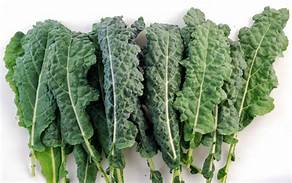Importance of well balance diet
All food contains all of the nutrients we need to be healthy, it is necessary to eat various foods in sufficient amounts. A good diet will include many different foods, and sufficient in quantity and quality to meet an individual’s need for food energy and other micro nutrients.
FLAX
Typical serving size:
1 to 2 Tbsp, ground (7 to 14 g)HOW IT HARMS
Fetus and nursing infants Bleeding problemsWHAT IT HEALS
Heart disease High cholesterol Symptoms of menopause Cancer Constipation Flaxseed, traditionally known as linseed, is a tiny seed packed with a variety of components that can play an important role in your dietIt is inexpensive and has a pleasant nutty flavor
There is no recommended daily amount, but many studies use 1 to 2 Tbsp of ground flaxseed daily
Flax is available in different forms
Flaxseed oil provides the omega-3 fatty acids that flaxseed does, but not the fiber
Flaxmeal is ground flaxseed that can be incorporated in baking recipes and smoothies
Health Benefits
Helps prevent heart diseaseFlax is a rich source of alpha-linolenic acid (ALA), an omega-3 fatty acid, which aids circulation by reducing the stickiness of blood platelets
Flax also contains soluble fiber, which helps lower cholesterol levels and consequently lowers heart disease risk
Studies at the University of Toronto showed that 25 to 50 g of flax per day helped lower blood cholesterol significantly
Relieves mild menopausal symptoms
Flax contains lignans, which convert in the body to compounds similar to estrogen
Thus, eating flaxseed may improve mild menopausal symptoms caused by reduced estrogen levels, but you have to take enough: Taking 40 g of flaxseed daily helps reduce hot flashes and night sweats in women with mild symptoms, but a lower dose of 25 g per day may not have an effect
May help protect against certain types of cancer
A 2007 study showed that flaxseed reduced growth of breast cancer cells in mice
More human studies are still needed to find out if the effects hold true for humans
May help relieve constipation
Flax is a great source of soluble and insoluble fiber, which promotes regular bowel movements
50% of flaxseed oil is made of alpha-linolenic acid, a heart- healthy omega-3 fatty acid
Health Risks
Fetus and nursing infantsBecause flax acts like the hormone estrogen, it can pose a risk for fetuses and nursing infants, although more research is needed
To be safe, do not consume while pregnant or nursing
Blood clotting
It may increase the risk of bleeding in people with bleeding disorders
Avoid flax if you have a bleeding disorder
Allergies
WARNING
!FOOD-DRUG INTERACTION
Because the lignans in flax are phytoestrogens, it may affect drugs such as tamoxifen that are being used to treat hormone-sensitive conditions; while some research suggests that it helps these conditions, more studies are neededTalk to your doctor before eating flax while on tamoxifen, or if you have hormone-sensitive ailments such as breast or uterine cancer, endometriosis, or fibroids
Buying Tip
s
Or you can buy it already ground
Often, flaxseed oil is found in the pharmacy section




